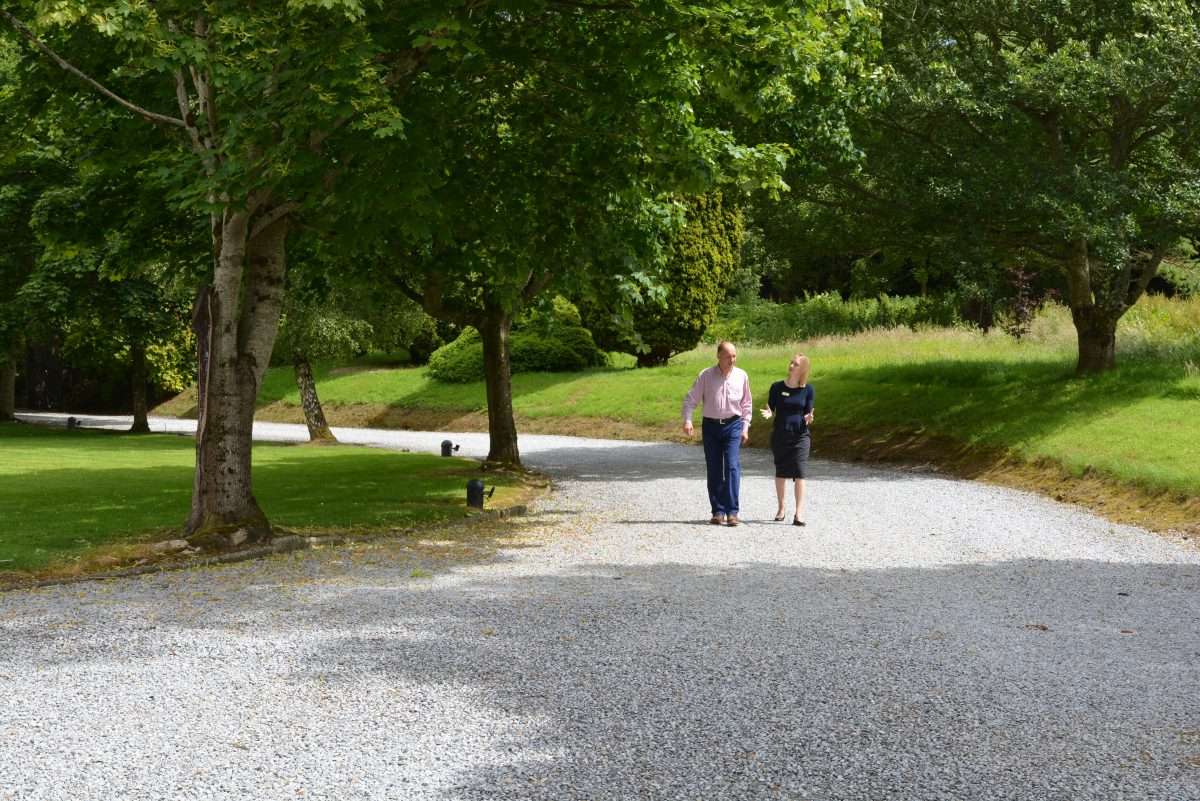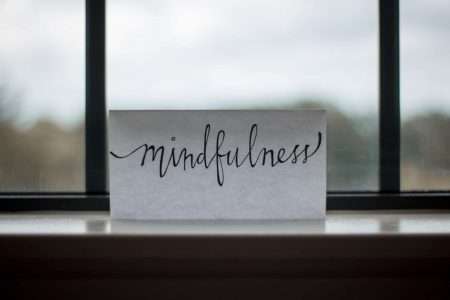In recent years, mindfulness has emerged as a transformative tool in helping people with addiction recovery. While the roots of mindfulness stem from long-standing Eastern philosophy and traditions, a growing body of new research demonstrates its true benefits for your mental well-being.
People often forget that addiction starts in the mind before it can affect the body. Oftentimes, individuals with alcohol or drug misuse can attend treatment with feelings of guilt, shame and resentment for things they may have done in the past. Mindfulness aims to help centre your presence from the events in the past or future to the present moment you are experiencing. This is vital to help you feel less anxious and low because you won’t feel anchored down by events or thoughts from the past.
What is Mindfulness
“Life moves pretty fast. If you don't stop and look around once in a while, you could miss it.” -Ferris Bueller
Mindfulness is a technique that involves paying close attention to what is going on inside and outside your body, moment by moment. You can often get caught up in the day-to-day stresses of life without much consideration for the thoughts that run through your mind and their effects on your emotions and behaviour. Unfortunately, you cannot simply learn mindfulness after spending a specific amount of time doing it. It is a technique that needs practice and time to master and, as with any skill, the more you practice, the better you will get at it.
Thich Nhat Hanh – a Vietnamese spiritual leader, known as the ‘father of mindfulness’, described the act of mindfulness as:
“There are two ways to wash the dishes. The first is to wash the dishes in order to have clean dishes and the second is to wash the dishes in order to wash the dishes.”
Thich Nhat Hanh
In his groundbreaking book, The Miracle of Mindfulness, he explains that if we do tasks for the sake of getting it over and done with, then we can never truly appreciate moments in life. We are in a constant cycle of worrying about the next task or issue while in the middle of doing things.
Thich Nhat Hanh says that to be fully able to enjoy quiet moments like sitting down and drinking a warm cup of tea, you have to be able to also appreciate those moments in the middle of your daily routine – like washing up and cleaning up. It is about embracing what you are doing, being present in the moment and not getting distracted with previous or future tasks. His example is about daily chores but it can be easily applied to all aspects of your life.

Get Help and Advice for Your Addiction Today
The Science of Mindfulness
Research has shown that regular mindfulness practice has proven great benefits for the body – like reducing inflammation, and blood pressure and improving the immune response. A growing number of studies also show improvements in an individual’s psychological well-being, attention, mood and emotional regulation.
While the benefits of mindfulness are apparent, the question remains: what is it about mindfulness that has such a profound and positive effect on people’s bodies?
The brain is great at remodelling and reconnecting – a concept called neuroplasticity. It has been demonstrated that during mindfulness, areas of your brain are upregulated and neural connections are enhanced which can help improve your psychological and emotional state.
Mindfulness Tips and Techniques
When you try mindfulness for the first time it may feel a little awkward or you may feel as if you are not doing it right. These are widespread thoughts but the key is to continue and like training a muscle, over time, you will get better at it. Here are some helpful tips to consider:
Mindful Movement
When walking, jogging or moving – become mindful of what your body is experiencing. You don’t need any level of previous experience to start practising mindfulness.
Many people mistake mindfulness for doing yoga and meditating. These are valid ways of practice that are beneficial for certain people. However, these are not the only ways to achieve mindfulness: conscious breathing is an excellent starting point, too.
You can start practising being aware of your feet making contact with the ground, what does it feel like? Take a moment to notice the floor’s texture against your feet and the cold breeze in the air. How the sunshine is warming your skin. Pay attention to how your arms are swinging and how your body is moving. Try to awaken all your senses and acknowledge them as you experience them.
Mindful Thoughts
Some people can find mindfulness tough because as soon as they try to focus on their thoughts, they have “a million thoughts running through their mind”. The aim of mindfulness is not to make thoughts go away or to stop them. Mindfulness is about acknowledging the thoughts as events in your mind to help you better process what is happening.
For example, if you have an anxious thought – you can quietly acknowledge it – “That’s an anxious thought”. Recognising and naming thoughts can help you process them better, being more tolerant and becoming more mindful.

Mindful Body Scan
This is a mindfulness technique where you systematically work through different parts of your body and scan them, recognising them if they are tense or stressed. Relaxing parts of your body and your head to your toes. This can also be used to detect early signs of stress building up or addiction cravings. By noticing them and accepting them in a non-judgmental way, you will be able to deal with them in a better way.
How To Be Mindful in Recovery
Mindfulness can be a powerful tool in addiction recovery. The techniques used are much the same, with a key emphasis on being non-judgemental and accepting the past. Many individuals seek recovery after their addiction has inflicted considerable hardship on themselves and their loved ones. Therefore, the challenge in recovery is to reverse the negative self-talk and resentment people may have developed towards themselves. This can be done in three main ways.
Intentional Observation
This involves consciously monitoring what is going on around you and the thoughts and emotions that you are experiencing.
- Acknowledging Thoughts: You should not deny or block thoughts you might experience in recovery. These can come naturally; it is important to notice and acknowledge them.
- Acceptance and Non-Judgemental: They are, after all, thoughts and even if they are negative – having them does not mean you will act on them or that it will change your behaviour. While our thoughts can come and go, our behaviour is directly in our control. Try to be non-judgemental towards yourself. This can help build kindness and compassion within you.
Living with an addiction can wear away at your self-worth. Feelings of “I am not good enough” or inadequacy can become common. Mindfulness can help you to combat this by rewiring your self-talk and internal mindset. If you can reprogram how you talk to yourself, building kindness and compassion, then you will have a very powerful skill to help you go through the recovery path.
Becoming Mindful of Relapse and Triggers
Mindfulness and meditation aren’t just useful for rehab alone. These are vital tools that you can add to your daily routine that can help de-stress and preserve your mental health in your recovery journey. We know that not every moment will be easy, so having important methods to bring you back to your calmer state can be crucial.
With mindfulness the aim is not to block negative thoughts or ‘make them disappear’, it is to notice them for what they are. One of the biggest relapse triggers tends to be stress and mindfulness has been shown to make people calmer and reduce their body’s natural stress response. Mindfulness provides you with a coping mechanism to deal in a better way with stressors. It helps to control emotions and navigate the triggers in a much calmer way that could prevent you from relapse.
Mindfulness isn’t just a quick hack technique that can be used here and there, it needs to become a lifestyle choice. When it is infused into every aspect of your life then you will see the true benefits of it. During recovery you’ll work on your relapse triggers and thoughts, often there will be cues and thought patterns that can make you more likely to relapse. When you can notice the thoughts that can trigger a relapse and you can identify them as such and are still able to move on with your day then you have found a peaceful path to recovery.
“Drink your tea slowly and reverently, as if it is the axis on which the world earth revolves – slowly, evenly, without rushing toward the future.”
-Thich Nhat Hanh



